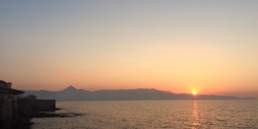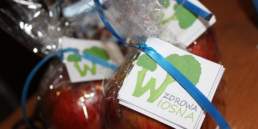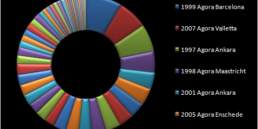How does the Comité Directeur work in times of the Corona pandemic? When international activities cannot take place and not all CD members can stay in Brussels? Diederik de Wit, President of AEGEE-Europe since this summer, gives a thorough insight into his experience in the new task and life in the headoffice.
Golden Times: Diederik, how did you settle into the new task as President?
Diederik de Wit: When I think about the tasks or challenges I face which are new, a couple things pop-up in my mind. The first, and most obvious one, is the workload of CD. Luckily I have no troubles working hard for something I deeply care about, but the challenge is more doing this in a sustainable way. No one wants the CD to burn-out after a couple months, so you need to rest and have some time for yourself even if your list of tasks is not yet finished. One particularly funny moment was when I was in the office late at night and I told the team to finish soon and get enough sleep before the next day. The reaction was frustration as they were finishing their work, before we realised and laughed about not being able to work more. Another challenge has been the financial tasks, as we have no Financial Director.
GT: How did you solve it?
Diederik: Now we are settled in the division of work between Valentina, Veronika, the Financial Assistants, and me, but we had to spend time on bringing structure into this part of our work.
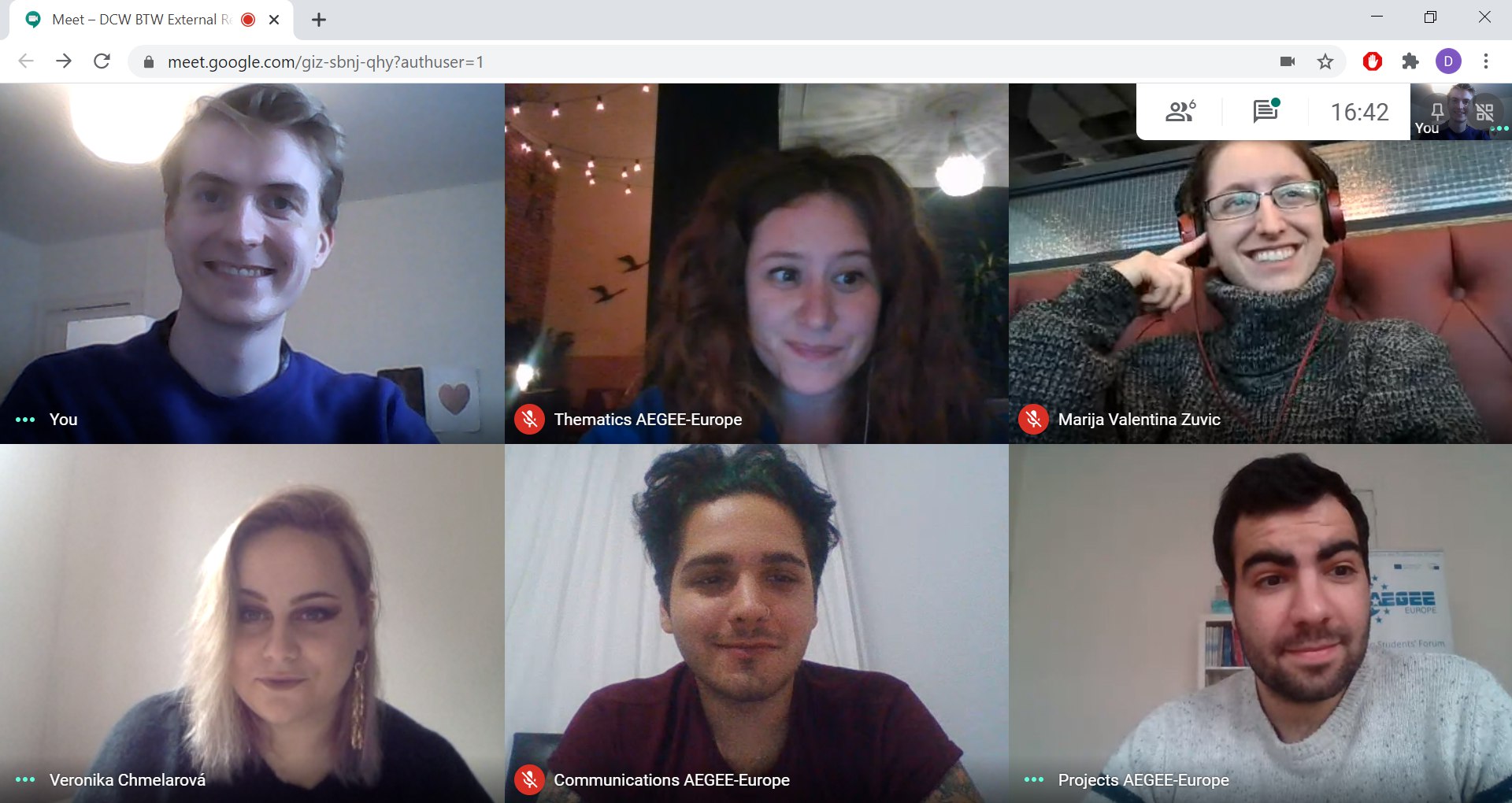
GT: How did you experience the knowledge transfer period in July?
Diederik: It was a very exciting time, as there is a lot you learn in a very short period of time. You really get to know your team a lot better, and you are moving to a new city. Since I have been in AEGEE, it has always been something next to my studies and work. Now, it is the only thing I am doing. This change feels very unreal, till it happens during knowledge transfer.
GT: What is the best part about being president?
Diederik: This answer will be different for every person who takes on this role. For me, I love a challenge, and if there is one thing which there is plenty of when you are President, it is challenges. Whether it is related to your own portfolio, or to helping out in your team, there is always something to sink your teeth into.
GT: You surely had expectations when you decided to run for president. What is the biggest thing you did not expect or which surprised you?
Diederik: The head office is in much better condition than I was led to believe, which was a nice surprise. Related to the work of CD there was a nice surprise as well, as it was easier to settle into the work than I thought it would. I thought a lot about this year, including many nightmare scenarios, but in the end it went much smoother than I feared.
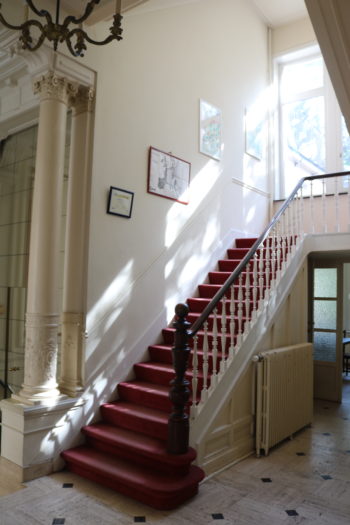
GT: Corona is affecting the whole network. Are all CD members living in Brussels? If not, who is missing and how do you communicate with each other?
Diederik: Kutay and Elena are not in Brussels, being in Turkey and Russia respectively. We miss them a lot and we are working hard on getting them here, but there is only so much you can do when you are waiting for authorities and institutions to give you the documents you need. When I think about our office, the vision in my mind is mostly in Slack. All of our meetings and social time together, it happens via screens. I will not lie and be overly positive, it has been extremely challenging and it affects us a lot. We try to compensate for this and come up with other solutions, but there is only so many games of Skribble which Veronika can win before you want to see each other in real life.
GT: A few weeks ago Belgium was named a Corona hotspot. How does this affect your daily work – for example regarding meetings with external contacts in Brussels, travels to the network and hosting visitors from the network?
Diederik: As other NGOs are affected in the same way as us, no one is organising live events for groups of people. The office is only open for the employees living here, or for essential things they have to do. We are not able to do any network travels, did not have transition cocktails, and are not having any visitors. One challenge is also being cooped up together. Usually when you are in the CD, the European board travels, there are events to go to, and there are your personal hobbies and interests outside of the house, but now a lot is closed and online. It can be challenging to work in this high capacity together, and then not being able to take a break from each other. Everyone needs their own space, and we are lacking that.
GT: You are still looking for a Financial Director. How do you deal with the tasks right now and are there any potential candidates for the position at the Autumn Agora?
Diederik: Like I mentioned before, we spent considerable time on making up for this missing role in our team. Right now we feel confident to handle AEGEE-Europe’s finances with our knowledge and division. Together with Michalina, Nicoleta, Veronika, Valentina, and me we are covering the work of a Financial Director. Luckily we all have got a similar vision of how this work should be done and we have already made a lot of progress in this field, even without a Financial Director!
GT: The online Agora will start on 15th of October. What will be the biggest challenge for your team?
Diederik: A stable WiFi connection is unfortunately not always guaranteed, which is a minor but important inconvenience. Furthermore, I think we face the same challenge as every other CD; it is our first Agora and we are a bit nervous and might be over- or under-preparing certain things.
GT: Let’s talk about the wider picture of AEGEE. All AEGEE-Europe events had to be cancelled. What does this mean for AEGEE in general – such as human resources, reputation or finances?
Diederik: I think all the effects of cancelling events and the pandemic in general is too much for a short interview. We could write entire reports and strategies on this given enough time. We should highlight that all physical live AEGEE-Europe events have been cancelled, so we are once again moving them to an online format. Many Locals, depending on their local government and countries’ situation, are also able and trying to hold live events in their own regions. For example, the Europe on Track team had a live/online meeting together, from three different countries!
Generally, we have seen that it was demotivating for the network, which although seemingly obvious is not something we should gloss over. How do we maintain motivation in our organisation during these difficult times? This question is a question in all our minds which we need to try and answer. We do invite everyone who wants to help AEGEE-Europe during these difficult times to join our Covid-19 Progress Meeting during the Agora. We certainly do not have all the answers, and we intend to make full use of the knowledge of all people in AEGEE to get through it.
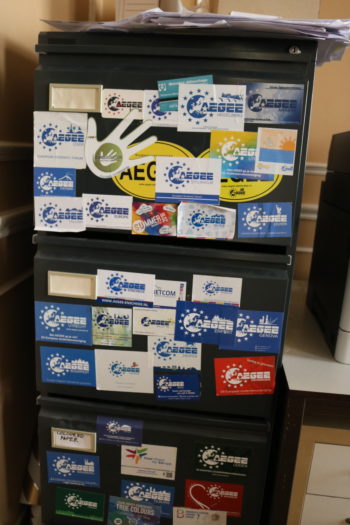
GT: Are you afraid of negative consequences by Corona for the network? And what can you do to minimise the effect of Corona on the network?
Diederik: There is a lot of uncertainty right now, for everyone. There are many things to fear, both for AEGEE-Europe, for ourselves, and our friends and family. Although these feelings are normal and should be acknowledged as such, I prefer to think about the positive things we can do. Our Activity Plan has got a section on how we want to deal with Covid-19 and the pandemic. It is noticeable how this section is rather large, has everyone in CD as responsible, and depends on many collaborations. That is because the effects of the pandemic reach far and we have to work together.
Right now we see a couple things as possibilities and solutions, such as: putting a focus on our thematic work, helping locals with their recruitment strategies, promoting more regional live events, connecting our European Bodies with the locals for interesting online events and having consultations with the network. On top of that, we should try to be flexible and forgiving towards each other.
GT: The life of a lot of locals stood or stands still. Do locals have to be afraid to be downgraded or deleted as a consequence?
Diederik: We are here to help them and to try to motivate them as best we can. We only require communication from their side so we can understand the whole situation and in this way we can move forward together with the help of the Network Commission.
GT: What are you doing so that 2021 will be a better year? For example, which old and new projects can we look forward to?
Diederik: In these two months we have worked in collaboration with different stakeholders and AEGEEans on the submission of four new project grants.
- One of the exciting one for many is the application for the Summer University project, a first step for having Summer Universities funded all across Europe. Specifically, in this Summer Universities we want to address the topics of sustainability, inclusivity and youth activism in local and regional communities.
- Another application to note is one with our collaboration with the AEGEE-Academy, who have submitted a grant for organising a funded TNT on the topic of anti-racism for having 18 new trainers in AEGEE.
- With the support of the Political Activism Working Group we have submitted another project grant in collaboration with The Good Lobby for tackling the topics of youth co-management and participatory budgeting.
- Furthermore, we have submitted an application in collaboration with other organisations for having the second edition of DIVE on the topic of diversity and social inclusion.
Besides that we have arranged a collaboration with JEF Europe for mixing our networks for a project which will focus on the Conference on the Future of Europe and how our memberships define the next chapter of Europe. Finally, we are working with the Working Groups to prepare a booklet of project initiatives and guidelines to make it easier for them and locals to implement projects at a local level.
GT: Finally, a couple of questions about CD life: how do you like Brussels? Did you and your team have the chance to do some sightseeing?
Diederik: We had a couple of moments since we started to be able to have a look at Brussels. During the Knowledge Transfer we got a very interesting tour of the institutions, we had a city tour by one of our Advisory Board members, and we went out a few times to get some waffles and fries. I think that after the Agora our weekends should open up a bit more, so we can see a bit more of Brussels.
GT: Do you eat together as a team?
Diederik: We eat together when it fits into our schedules, and we have a social lunch together at least once a week. We are trying to also have some time together while we are not talking about AEGEE, as this is good practice when you are spending so much time on it already.
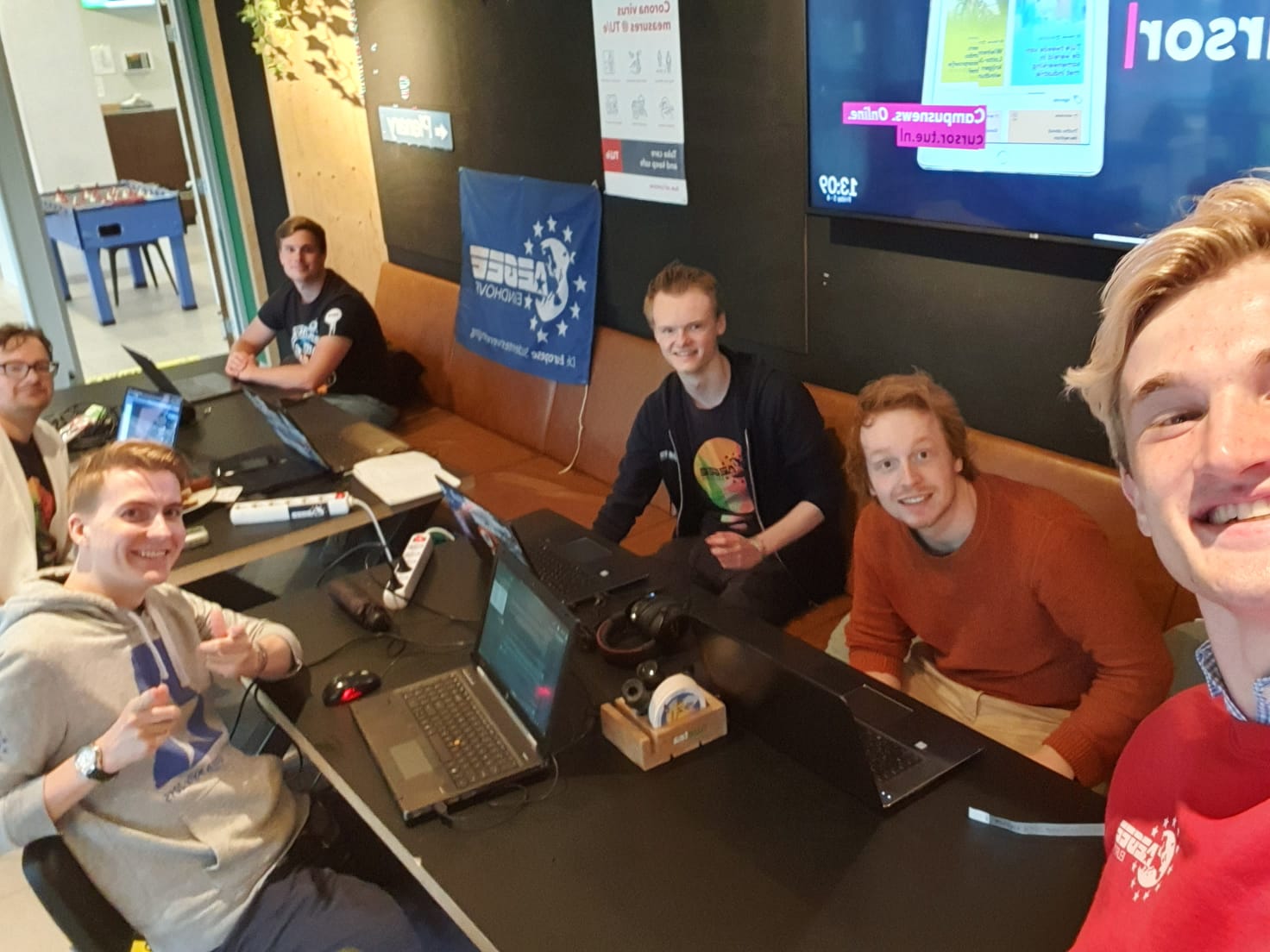
GT: Who is the best cook in the CD?
Diederik: I will hold my tongue on who is the best cook as I still have to live with them for a year. We do have some plans on cooking notable food from our own countries for each other, so that’s something we look forward to. Jokes have been made about Dutch food, but I am sure I will be able to show them one of the pearls of Dutch cuisine.
GT: What do you and your fellows do in order to have a work-life-balance?
Diederik: The last few months have been really intense for us, as there were many deadlines. Drafting the Activity Plan took quite a bit of our time. There were many project application deadlines on the 1st of October. Agora preparation has also been taking a lot of effort. After the Agora, we should take some time for ourselves in order to still be able to give AEGEE our best. When in CD, it is important that you have some friends and hobbies outside of the team. AEGEE has a habit of taking over your life during a CD year, so it’s nice to also have something outside of it. Your hobbies and friends are a necessary stress reliever and allows you to focus during work. Besides your friends, hobbies, and distractions, it’s important to have a healthy rhythm. Make sure you get enough sleep, eat healthy and get in some exercise. These things are generally considered to be important anyway for anyone’s mental health, but during a year such as this it becomes apparent why. Taking care of yourself and your body, is an essential cornerstone of sustaining yourself.
GT: Anything else you want to add?
Diederik: I would like to say thank you to every member of AEGEE. Wherever in our organisation you are, it is you who makes AEGEE what we are! It is an incredible feeling to be in the CD and have an overview of the entirety of AEGEE and see what people are working on, what they believe in, and what their backgrounds are.
Cover photo by Alejandra Piot Pérez-Abadín.

